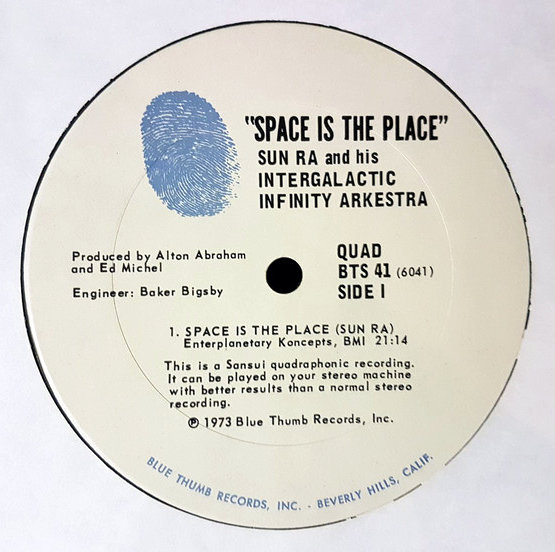Discogs censorship thread
Sombunya I believe that after Discogs was purchased by "Zink Media" the policy discussed here, as well as other things, came into play.
musiclraider When I read your post it intrigued me. But upon investigation it seems that Zink Media is a private company owned by Kevin Lewandowski, who started Discogs. Are you sure Discogs was bought? Even so, being bought by the person who started it is hardly likely to result in a great change in policies.
Sombunya When I started here 13 years ago it seemed like it was just all teo and nik. I also naively assumed that teo may have sold this place when it grew large and profitable (which is what I would have done) but I may very well be wrong. It also seemed much looser and more liberal back then than it is now.
musiclraider Yep, I've been a member since 2005 and agree it has changed dramatically.
Inevitable really, but I am still amazed that they continue to allow the sale of bootlegs*, great stuff.
I wonder if/when 'Zink' will sell out to a big multinational, as the site must be worth millions if not billions now.
If it does, you will see much more dramatic changes happen very fast.Sombunya I can hardly wait (sarcasm intended)
Tom here: Discogs is an electronic dance music database that gradually expanded into a music collecting database, where old vinyl and CDs are bought and sold.
After spending some time in the "member" sections, where the sausage-making of release submission and editing takes place, one might start wondering about the economics of the site. Anyone with a login can submit and edit releases. "Staff" has very little interaction with users and mostly allows a small group of hall proctor/Wikipedian/nerd types to run the show. In the forums they complain about "rogue" (i.e., ordinary) users. These nerds are all unpaid, and work out of zeal for vinyl details such as the color of the label and what pressing plant was used in 1974. Yet, their decisions about a release can instantly impact the value of a disc, as reflected in the buy and sell statistics of the Discogs marketplace area.
Let's say you own a Pink Floyd LP from the '60s. The marketplace shows 40 sales of the record have occurred, with low/median/high prices ranging from $15 to $150. One day, a hall monitor notices that your copy was pressed at a different plant and moves your release to a "new submission" that has zero market value. Tough for you, if you're thinking about selling it, until actual sales start to occur for this "new" submission.
At the moment, Discogs makes its money from charging fees to sellers of records, and advertising. It is not a non-profit, but it's also not a user-data harvester for one of the big Silicon Valley monopolies. There is an uncomfortable connection to Google, in that releases have links to "videos" (that is, songs with a still photo) with a search feature that's hard-coded to search only YouTube.
From its careers page (linked to above) Discogs resembles the standard VC-funded startup, gradually building its brand and expanding to other countries, such as Japan. It seems likely it will eventually sell to Amazon (a la IMDb) or Google (a la YouTube), in which case the owner will be paid handsomely and those hall monitors will be thanked for their years of valuable service. (Schadenfreude if they messed with your submissions.)
Additional info:
Discogs Careers page
Joseph Hartnett CUNY librarian Discogs.com research paper
*Update, May 2018: Not long after I posted this Discogs stopped selling bootlegs and/or "unofficial releases." I noticed because a Mr. Fingers LP I purchased at Satellite Records in NYC 18 years ago is categorized "unofficial." At the time I wrote this post it was being offered for sale for around 30 bucks by various sellers. A few months later those "for sale" listings disappeared and were replaced by the stern words "This release has been blocked from sale in the marketplace. It is not permitted to sell this item on Discogs."
Yet even today the release still has a listed market value based on sales during the "wild west" period. Below is a screenshot of data from my collection list as of this month:

On Twitter, Phoenix juggernaut sent me a tweet saying Discogs is "bootlegging my never released album for $299 in Japan as we speak," so maybe the "blocked from sale" notice doesn't appear for every user! This is hearsay, I haven't independently verified Phoenix juggernaut's claims, but interesting if true. There may be a claims process for separating "legitimately" from "illegitimately" marketable releases, I don't know. If there is, and if it's anything like Google's complaint-handling department, or run by the unpaid hall proctors described above, be very afraid.
Update 2: I told Phoenix, "Discogs has guidelines that sort of cover your situation; see 'Information For Artists And Labels' on their Policies page." Discogs may be protected under the "first sale" exception to copyright but they do have a procedure for artists to make copyright complaints. To challenge the sale of a single copy of an promo release given to industry insiders in 2001 and now being offered for sale at $299 (Phoenix's example) might not be worth the hassle, though.
Update 3: Now Phoenix juggernaut claims they are selling multiple copies of his disc. I told him I don't work for Discogs and he should report it if he thinks it's a copyright violation. (I should know by now not to get sucked into other people's obsessions. Another person who emailed me about Discogs was an angry person from Romania who felt he had been grievously wronged.)




